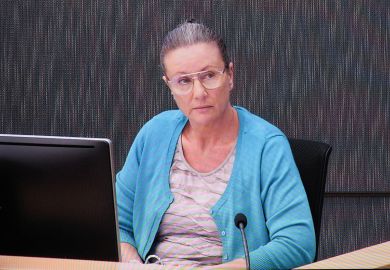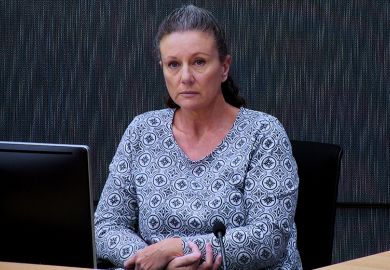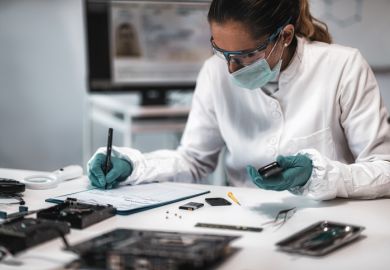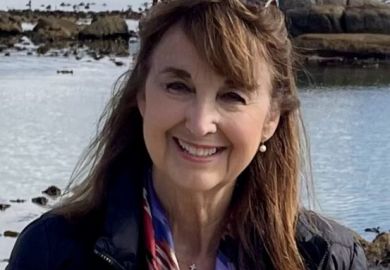An Australian learned academy has renewed its campaign for “a more science-sensitive legal system” following the complete exoneration of the woman once reviled as the country’s worst female mass murderer.
The New South Wales Court of Criminal Appeal has quashed Kathleen Folbigg’s convictions over the deaths of her four young children late last century, marking the culmination of a judicial inquiry that led to her pardon and release in June.
Holding back tears outside court, Ms Folbigg said she had faced “disbelief and hostility” for almost quarter of a century, most of it spent in prison. “I suffered abuse in all of its forms,” she said.
“I am grateful that updated science and genetics has given me answers as to how my children died. However, even in 1999, we had legal answers to prove my innocence.”
The Australian Academy of Science, which acted as an independent legal adviser in the judicial review that finally cleared Ms Folbigg, said “basic scientific principles” had been flouted on multiple occasions starting with her 2003 conviction.
She had been condemned for smothering her children despite a lack of pathology-based evidence of suffocation. Circumstantial evidence, including non-scientific opinions about Ms Folbigg’s diaries, had been “given more weight” than medical and pathological evidence supporting natural causes.
When new genetic evidence was presented at a 2018 inquiry, “erroneous interpretation” of the data had been accepted by the court. And no trauma or grief experts had been able to provide expert evidence before the 2022 inquiry that finally established her innocence.
“If a case of this magnitude does not trigger law reform, I’m not sure what does,” the academy’s chief executive, Anna-Maria Arabia, told reporters.
The academy advocates a “reliability standard” for scientific evidence presented in trials. “Unreliable evidence is routinely admitted into courts and there is no post-review appeals mechanism to deal with mistakes,” Ms Arabia said.
She said Australia also needed some sort of independent post-appeal mechanism, such as a criminal case review commission, so that courts could consider fresh scientific evidence after other appeals mechanisms had been exhausted.
And she called for wider use of independent scientific advisers. The academy’s intervention in that role had been “rare…but it ought not to be. We must find mechanisms to enable independent experts from the right disciplines, wherever they reside, to be brought before our courts so that they can be cross-examined by all parties.
“Make no mistake that without law reform, these sort of miscarriages of justice will continue.”
Carola Vinuesa, co-director of the Centre for Personalised Immunology at the Australian National University, led the team which identified a genetic variant in two of Ms Folbigg’s children. The judicial inquiry found there was a “reasonable possibility” this variant had caused their deaths.
“Science has changed someone’s life here,” Professor Vinuesa said. “I do feel there has been a miscarriage of justice. I personally can’t comprehend what Kathleen has gone through. She’s clearly a strong and forgiving woman.”
Professor Vinuesa said that she had “received requests from parents around the world that have unfortunately experienced similar successive infant deaths” and that genomic diagnosis could potentially bring “understanding, closure and the hope of having healthy children by screening future embryos”.
Register to continue
Why register?
- Registration is free and only takes a moment
- Once registered, you can read 3 articles a month
- Sign up for our newsletter
Subscribe
Or subscribe for unlimited access to:
- Unlimited access to news, views, insights & reviews
- Digital editions
- Digital access to THE’s university and college rankings analysis
Already registered or a current subscriber?











